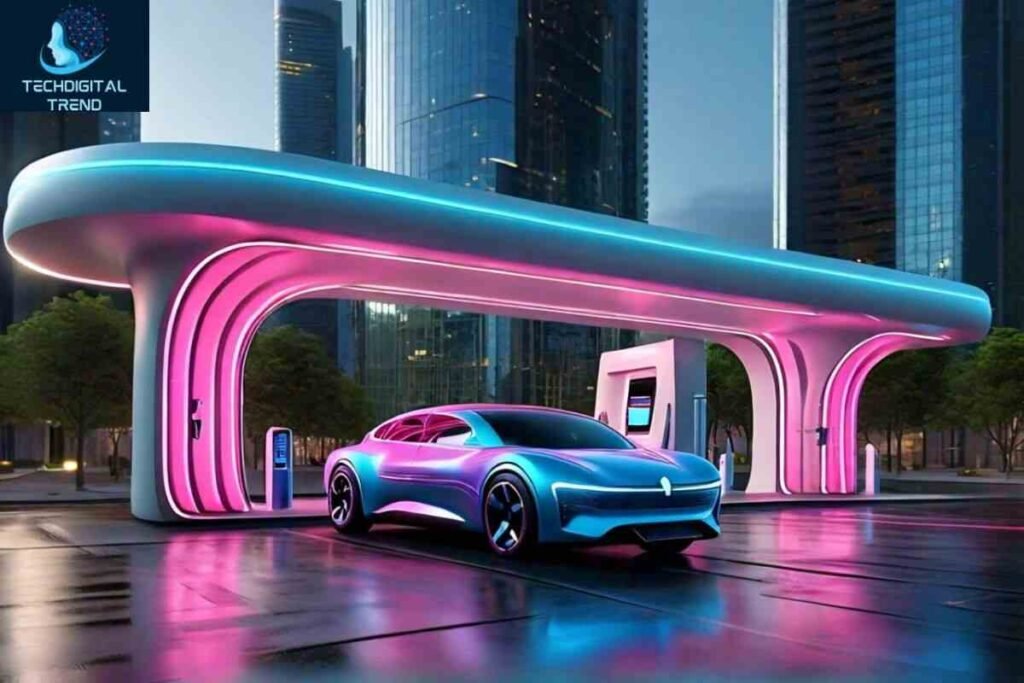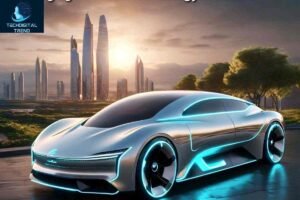Table of Contents
ToggleElectric Vehicle
The world is shifting towards a more sustainable future, and the electric vehicle (EV) industry is at the forefront of this revolution. With governments setting ambitious targets to phase out internal combustion engines and consumers becoming increasingly environmentally conscious, the demand for EVs is skyrocketing. In this article, we’ll explore the top electric vehicle trends in 2024, including innovations in battery technology, charging infrastructure, and sustainable energy solutions.
Electric Vehicle Trends in 2024
-
Increased Adoption
EVs are gaining popularity, with many countries offering incentives and tax credits to encourage adoption. In 2024, we can expect to see a significant increase in EV sales, with many automakers investing heavily in EV production.
-
Advancements in Battery Technology
Battery technology is advancing rapidly, with improvements in range, efficiency, and charging speed. Solid-state batteries, in particular, are gaining traction, offering enhanced safety and energy density.
-
Expansion of EV Charging Infrastructure
An essential part of the EV ecosystem is the infrastructure for charging. A large number of businesses are anticipated to invest in high-speed charging corridors and urban charging solutions in 2024, which will result in a notable growth of charging networks.
-
Sustainable Energy Solutions
EVs will become increasingly important in balancing supply and demand as the grid switches to renewable energy sources. We anticipate the emergence of vehicle-to-grid (V2G) technology and creative energy storage options in 2024.
Increased Focus on Recycling
As the EV market grows, recycling will become a significant concern. In 2024, we can expect to see innovative recycling technologies emerge, focusing on battery recycling and repurposing.
Electric Vehicle Innovations
-
Solid-State Batteries
Solid-state batteries offer enhanced safety, energy density, and charging speed. They’re poised to revolutionize the EV industry, enabling longer ranges and faster charging.
-
Advanced Charging Systems
Advanced charging systems, like high-speed charging and wireless charging, are improving the EV ownership experience.
-
Autonomous Electric Vehicles
Autonomous EVs are the future of transportation, offering enhanced safety, convenience, and sustainability.
Charging Infrastructure: The Backbone of the EV Ecosystem
Charging infrastructure is critical to the widespread adoption of EVs. In 2024, we can expect to see significant investments in charging networks, including high-speed charging corridors and urban charging solutions.
- Chinese electric vehicles dominate the global market, with more than half of all EVs worldwide produced by Chinese automakers.
- Despite a global decline in demand, the outlook for electric vehicles remains strong through 2035.
- Clean Electric, an Indian battery tech company, has developed a rapid-charging battery that can fully charge EVs in under 12 minutes.
- Singapore companies Power-Up Tech and Beecharge Innovation Group have been approved to test mobile charging services for electric vehicles.
- The Land Transport Authority in Singapore has also approved trials for battery charging and swapping systems for electric heavy goods vehicles.
Benefits of Electric Vehicles
- Environmental Benefits: Electric vehicles produce zero tailpipe emissions, reducing greenhouse gas emissions and air pollution.
- Lower Operating Costs: Electric vehicles have lower running costs compared to internal combustion engine vehicles, with reduced fuel and maintenance expenses.
- Smooth and Quiet Ride: Electric vehicles offer a smoother and quieter driving experience due to their electric motors.
Electric Vehicle Charging Infrastructure
- Public Charging Points: Singapore aims to deploy 60,000 charging points by 2030, with 40,000 in public carparks and 20,000 in private premises ¹.
- Home Charging: Installing chargers at residential carparks is optimal for most electric vehicle drivers, with an average EV driver only needing to charge their vehicle once a week ².
- Fast Charging: Fast charging infrastructure will be available at commercial malls, industrial buildings, depots, and petrol stations for opportunistic charging ².
Singapore’s Electric Vehicle Initiatives
- Electric Vehicles Charging Act: The Act forms the regulatory foundation for Singapore’s EV charging network, ensuring safety, reliability, and accessibility ³.
- EV Roadmap: Singapore has a comprehensive EV Roadmap to drive EV adoption, with a target of 60,000 charging points by 2030 ¹.
- Public Education Campaign: The Land Transport Authority (LTA) will launch a public education campaign to raise awareness of EVs and promote gracious charging etiquette ⁴.
Challenges and Limitations
- Higher Upfront Costs: Electric vehicles are currently more expensive than internal combustion engines, although costs are expected to decrease as technology advances.
- Limited Charging Infrastructure: While charging infrastructure is expanding, it can still be a challenge to find charging points, especially in rural areas.
- Battery Durability: Battery durability and recycling are concerns, although manufacturers are working to improve battery technology and recycling processes.
Conclusion
Electric cars are revolutionizing the transportation industry by providing a fuel-efficient and environmentally friendly substitute for conventional gasoline-powered automobiles. The battery, infrastructure, and sustainable energy solutions are all evolving at a time when the electric car market is expected to increase significantly. The advantages of electric cars make them a desirable choice for many organizations and customers, despite some obstacles and restrictions. We anticipate cutting-edge technology to surface as the sector develops further, paving the way for a more effective and sustainable transportation network.
Open this link: Tap to here















